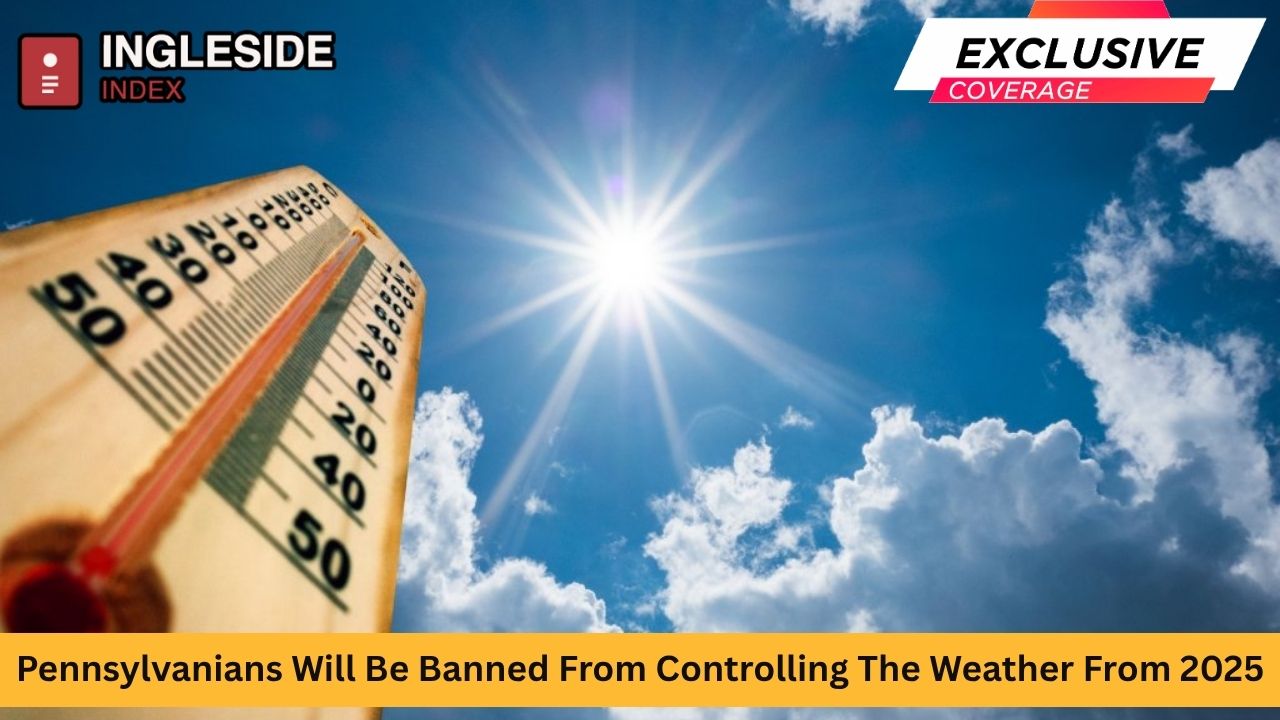In a move that may sound like science fiction to some and urgent environmental protection to others, Pennsylvania lawmakers have introduced a groundbreaking bill that aims to ban all forms of artificial weather manipulation within the state. Senate Bill 508, officially titled the Clean Air Preservation Act, was introduced in March 2025 by Senators Doug Mastriano and Camera Bartolotta. If passed, the law would prohibit Pennsylvanians — and even federal or foreign actors — from engaging in weather control technologies, citing public health, environmental, and sovereignty concerns.
What Exactly Does the Bill Prohibit?
SB 508 is one of the first of its kind in the United States to comprehensively outlaw a wide range of geoengineering and weather modification practices. Specifically, the bill bans:
-
Solar Radiation Modification (SRM): Includes controversial techniques like stratospheric aerosol injection, which disperses particles into the upper atmosphere to reflect sunlight and cool the planet.
-
Cloud Seeding: A common form of weather manipulation where substances like silver iodide, dry ice, or liquid propane are introduced into clouds to stimulate precipitation.
-
Artificial Atmospheric Interventions: The bill also outlaws the release of chemicals, aerosols, nanoparticles, and electromagnetic radiation into the air for purposes that affect climate or weather conditions.
-
AI-driven Atmospheric Modifications: Use of artificial intelligence to guide or automate weather intervention strategies is also included in the ban.
The bill is intentionally broad in scope, aiming to cover both current and future technologies that could alter natural weather patterns.
Law Enforcement and Cease-and-Desist Powers
One of the more unusual provisions of the bill is that it empowers state and county law enforcement agencies—specifically the Pennsylvania State Police and county sheriffs—to issue cease-and-desist orders against individuals or organizations suspected of violating the law. These orders carry the full legal weight of a court-issued mandate.
If a federal agency, corporation, or foreign government is caught engaging in banned weather manipulation within Pennsylvania’s jurisdiction, local law enforcement is mandated to notify the responsible party that such actions are not allowed in the state—even if approved at the national or international level.
Hefty Fines and Harsh Penalties
The consequences for violating the proposed law are severe:
-
Felony Charges: Any individual or organization found guilty will be charged with a felony.
-
Minimum Fine: $500,000 per violation.
-
Prison Sentence: A mandatory minimum of two years in prison.
-
Daily Violations: Each day the violation continues counts as a separate offense, exponentially increasing the fines and prison time.
Additionally, violators may be prosecuted under Pennsylvania’s Air Pollution Control Act, which brings with it a separate layer of legal consequences.
Why Now? Understanding the Motivation
The introduction of SB 508 comes amid growing global debate over climate engineering and geoengineering technologies. Proponents of these methods argue that they are necessary tools in the fight against global warming, while critics warn of unintended consequences, lack of oversight, and potential damage to ecosystems.
Senator Mastriano has framed the bill as a protective measure aimed at defending Pennsylvanians’ air quality, public health, and environmental sovereignty. Many constituents have expressed concern about ongoing government and corporate experiments in the skies — including “chemtrail” fears and suspicions of undisclosed atmospheric tests.
Whether rooted in science or public anxiety, the Clean Air Preservation Act is seen by its supporters as a bold step toward transparency and environmental stewardship.
Where the Bill Stands Now
As of July 2025, SB 508 has been referred to the Senate Agriculture and Rural Affairs Committee but has not yet received a hearing or floor vote. While it has attracted attention from both environmental activists and skeptics of geoengineering, its legislative future remains uncertain.
If passed, the bill will take immediate effect, ushering in one of the nation’s strictest bans on weather control efforts.
Implications for Science, Industry, and Policy
The passage of SB 508 could have significant ripple effects:
-
Scientific Research: Universities and research institutions operating in atmospheric science may face new barriers to studying climate-related phenomena.
-
Private Industry: Companies exploring rain-enhancement technologies for agriculture or drought-prone regions may be forced to halt their operations or move to states with looser restrictions.
-
Federal-State Tensions: If a federally funded weather intervention project conflicts with Pennsylvania law, the state’s enforcement provisions could trigger legal challenges over jurisdiction.
Final Thoughts
Pennsylvania’s SB 508 is more than a quirky piece of legislation — it reflects a growing unease over who controls the environment, how far science should go, and who gets to decide what’s safe or ethical. While critics argue that the bill may be overly broad or stifle innovation, supporters see it as an essential line of defense in a world where climate and weather manipulation is no longer the stuff of science fiction.
Whether or not the bill passes, one thing is clear: the sky is no longer off-limits to lawmakers — and the debate over controlling the weather is just beginning.




